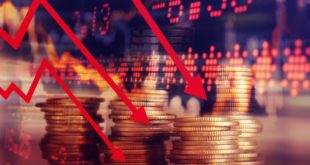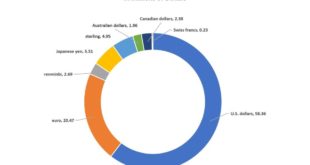From race to gender to nearly everything else, decisions about what is correct or incorrect are made according to politics. This is a recipe for social destruction. Original Article: "Politics Is Turning Us into Idiots" This Audio Mises Wire is generously sponsored by Christopher Condon. [embedded content] Tags:...
Read More »Who Are the Wealth Destroyers, Politicians or Billionaires?
Thinking that billionaires are a policy failure has become pervasive in the United States. Politicians like Alexandria Ocasio-Cortez and Elizabeth Warren are leading the charge in the demonization of billionaires. Left-leaning politicians and their allies think that billionaires corrode society by accumulating large fortunes, which amplify inequality. As such, many propose taxation as a tool to promote fairness by redistributing resources, yet such intentions are not...
Read More »To Fight the State, Build Alternatives to the State
The challenge at hand is more than simply opposing the state. Rather, it is necessary to build up, reinforce, and sustain institutions that can offer alternatives to the state. Original Article: "To Fight the State, Build Alternatives to the State" This Audio Mises Wire is generously sponsored by Christopher Condon. [embedded content]...
Read More »The Fed’s Capital Goes Negative
The Federal Reserve’s new report of its balance sheet shows that in the approximately six months ended March 29 it has racked up a remarkable $44 billion of cumulative operating losses. That exceeds its capital of $42 billion, so the capital of the Federal Reserve System has gone negative to the tune of $2 billion—just in time for April Fools’ Day. This event would certainly have surprised generations of Fed chairmen, governors, and, we’d have thought, newspapermen....
Read More »Why the Regime Needs the Dollar to Be the Global Reserve Currency
Last week, Fox News aired a segment discussing the possibility that the US dollar will cease to be the global reserve currency and what that would mean for Americans. The tone of the piece suggested that a “catastrophic” decline of the US dollar was not only possible, but perhaps even imminent. CNN last week also aired its own segment suggesting the US will face “a reckoning like none before” if the “dollar’s dominance” in the global economy falls significantly. Much...
Read More »What Our Energy Future Be? A Few Ideas
Access to energy has long been taken for granted as society became quite used to relatively stable prices and the ample abundance of energy. Meanwhile, the business side of energy was relegated to industry insiders, policymakers, and market traders dealing with the matter as a profession. However, the perceptible rise in prices and the fear of supply shortages have pushed energy considerations to the forefront of societal consciousness. This crunch has largely...
Read More »Is the Fed Trying to Bail Out the World? Sure Looks Like It
Like the arsonist who then heroically fights the fire he set, the Fed is increasing its efforts to bail out banks both at home and abroad. This does not end well. Original Article: "Is the Fed Trying to Bail Out the World? Sure Looks Like It" This Audio Mises Wire is generously sponsored by Christopher Condon. [embedded content]...
Read More »Cancel Culture: The Digital Panopticon
The panopticon is a hypothetical surveillance and control system first imagined by philosopher Jeremy Bentham in the eighteenth century. It’s envisioned as a tool to control the behavior of a large number of people with as little effort as possible. Here is one description: “The panopticon is a disciplinary concept brought to life in the form of a central observation tower placed within a circle of prison cells. From the tower, a guard can see every cell and inmate...
Read More »SVB’s Failure Is Not an Excuse for More Regulation
Recently, Silicon Valley Bank (SVB), a bank that was heavily involved in cryptocurrency, collapsed. Naturally, Democrats want to exploit the situation to rush through new regulations. But that will only make the problem worse. The failure of Silicon Valley Bank, a forty-year old, $200 billion bank, has caused many to worry about the country’s economic stability. Among the concerned is Senator Elizabeth Warren, who wants to reinstate some of the defunct banking...
Read More »Why Fractional Reserve Banking Is behind Bank Failures
Suppose an addict had the ability to magically create, ex nihilo, his own stimulating drug, as fractional reserve banks can do with money and credit. Would you expect moderation? Original Article: "Why Fractional Reserve Banking Is behind Bank Failures" This Audio Mises Wire is generously sponsored by Christopher Condon. [embedded content]...
Read More » Swiss Economicblogs.org
Swiss Economicblogs.org






